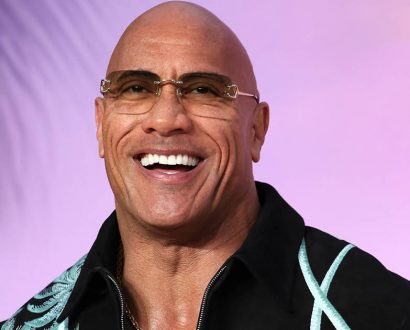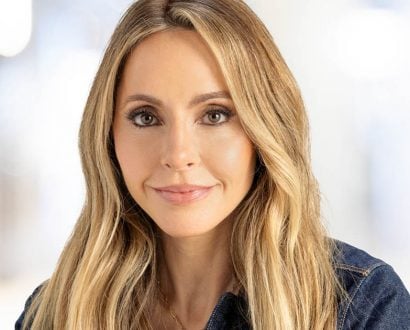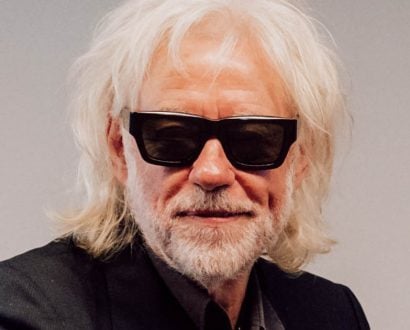COVID-19 is the unseen enemy. It knows no borders. It cares nothing about skin colour, socioeconomic status, ethnicity, sex or religion. It has claimed the lives of many and stolen the livelihoods of even more. It has fed on our inadequacies, highlighted our vulnerabilities and tested our resilience. This novel coronavirus has rocked our entire world.
But it hasn’t broken our spirit. What has isolated us temporarily has bonded us forever. From those who stay home to the healthcare warriors on the frontline, the essential workers who keep plugging on despite the risk and the philanthropic powers from around the globe, we’re all in this together. And, as Queen Elizabeth II said, when we succeed “that success will belong to every one of us”.
Unfortunately, this success won’t come easy. But if there was ever a person more prepared to take on COVID-19, that person would be Bill Gates. His foundation has studied pandemic risks closely, and for years now, he’s warned of their potential detriment to our society at large.
“The country’s leaders need to be clear: shutdown anywhere means shutdown everywhere.” – Bill Gates
In 2015, Gates gave a TED talk explaining how the world was ill-prepared for the next outbreak, citing how we made it through the Ebola crisis in 2014 thanks to selfless healthcare workers and – more importantly – a stroke of good luck. Next time, he prophesied, we wouldn’t be so fortunate.
Well, “next time” is here. And, boy did he nail it. COVID-19 found us woefully unprepared. On top of mounting death tolls, economic concerns are vast and growing. But, with his trademark optimism, Gates says it’s still not too late, and the window for making important decisions hasn’t yet closed.
He’s confident that with swift implementation of his three-pronged approach, the world could soon be freed of COVID-19’s deadly grasp. Outlined in an opinion piece for The Washington Post, the first step of Gates’ plan identifies the need for a consistent nationwide lockdown. “The country’s leaders need to be clear: shutdown anywhere means shutdown everywhere,” he writes. “Any confusion about this point will only extend the economic pain, raise the odds that the virus will return and cause more deaths.”
Next, his plan champions the need for more efficient testing. Proper testing will enable a firm grasp on how many people are actually infected, giving a good idea of where the virus has been and where it’s headed next. And he believes the first to get the tests should be the people in essential roles like those in health care, followed closely by highly symptomatic people.
Finally, to win the war on COVID-19, Gates says it’s crucial to take a data-based approach to developing a vaccine. And government officials should refrain from stoking rumours and creating false hope that certain medications may be helpful in treating the virus because that only leads to panic buying of drugs that may turn out to be ineffectual. Instead, he says, “We should stick with the process that works: run rapid trials involving various candidates and inform the public when the results are in.”
If the research goes well, Gates believes scientists could have a COVID-19 vaccine ready in as little as 18 months. Then it’s down to distribution. He warns that we should “start now by building the facilities where these vaccines will be made”.
And, as we’ve come to expect from Gates, he’s putting his money where his mouth is. In February, he said that the Bill & Melinda Gates Foundation would contribute up to US$100 million (A$155 million) to the global response to COVID-19. In an unprecedented move, the billionaire has already promised to generously back vaccine development even though his plan will result in the loss of “a few billion dollars” on projects that won’t necessarily pan out. But to him, “a few billion … is worth it”.
Unsurprisingly, he’s not alone in this sentiment either. Many of the globe’s most prominent leaders and businesses have since stepped up to help combat this virus and its anticipated economic toll, inspiring others to do the same.
Here are some of the most influential among a growing list of givers that are providing relief from their corners of the world.
Jack Dorsey, Co-Founder and CEO, Twitter and Square Inc
In a desire to make an impact that’s seen in his lifetime, Twitter billionaire Jack Dorsey has pledged a quarter of his wealth to help fight COVID-19. That’s a staggering US$1 billion (A$1.5 million) donation he’s drawing from his stake in Square Inc – the payments firm he co-founded and heads.
His reasoning for donating this large sum is both simple and heartwarming: “I hope this inspires others to do something similar,” he said in a tweet. “Life is too short, so let’s do everything we can today to help people now.”
For years, Dorsey has kept his charitable giving private, but in this case, he decided to make all donations publicly documented. Dorsey hopes this transparency will provide crucial learnings for himself and others.
Jack Ma, Co-Founder, Alibaba
China’s wealthiest man, Jack Ma, is a force to be reckoned with in this global pandemic. He has pledged CNY100 million (A$22 million) to research organisations working towards a vaccine, including two Chinese government research organisations and Australia’s Peter Doherty Institute, the first laboratory outside of China to re-create the virus.
In March, Ma also donated half a million test kits and one million masks to the US amid a dire national shortage. He also had kits and medical supplies sent to countries in Europe, Asia, Africa and Latin America as dwindling supplies became a concern worldwide.
Bernard Arnault, Chairman, LVMH
LVMH tycoon and owner of bespoke luxury brands such as Louis Vuitton, Dior, Dom Pérignon, Givenchy, Bulgari, Fendi and more converted his perfume and cosmetic factories into hand-sanitiser production powerhouses in light of COVID-19. Bernard Arnault’s company has donated 12 tonnes of its chic gel to Paris’s hospital system and will “continue to honour this commitment as long as necessary”.
In addition, LVMH ordered 40 million masks from China to help France cope with the outbreak. The family-run group is no stranger to giving. For the past 25 years, LVMH has supported a broad program of initiatives for young people and artists with a philanthropy that extends well beyond France’s borders.
Azim Premji, Founder and Chairman, Wipro Limited
IT czar Azim Premji committed INR1,000 crore (A$205 million) in donations to fight COVID-19 through his philanthropic division the Azim Premji Foundation. In addition, his software development company, Wipro Limited, is adding another INR100 crore (A$20.5 million) to that sum, while his engineering services business, Wipro Enterprises Limited, has given INR25 crore (A$5.1 million).
The money is being used to facilitate a comprehensive, on-the-ground response in specific, hard-hit areas to provide immediate humanitarian aid. Funds have also gone to scaling up the healthcare system to effectively contain and treat the spread of the disease.
The leaders in luxury
Several of the world’s largest luxury fashion, jewellery and beauty companies have risen up to support relief efforts. From donating money to replacing their usual production lines with much-needed COVID-19 relief items, top brands from around the globe are pitching in to do what they can.
British heritage brand Burberry, for instance, is using its Yorkshire factories to produce hospital gowns and masks as well as non-surgical masks and gowns. The fashion house is also funding vaccine research at Oxford University and donating to charities such as FareShare and The Felix Project.
Likewise, Capri Holdings – the owner of Michael Kors, Versace and Jimmy Choo – pledged more than US$3 million (A$4.7 million) to the coronavirus fight, donating to numerous hospitals and charities in New York, Milan and London, as well as to WHO’s Solidarity Response Fund.
Luxury brand Chanel is another manufacturing masks and gowns for medical professionals and police officers in its production lines. The maison is also donating hefty sums to French emergency services and Parisian hospital systems.
Tiffany & Co has displayed extreme generosity in this crippling time as well. The heritage jeweller pledged a US$1 million (A$1.5 million) commitment to relief efforts and will match any employee contributions to the cause dollar for dollar.
Many more have joined the cause, from Estée Lauder to Valentino, Italy’s Moncler and Giorgio Armani. There’s Prada, Hèrmes, Brooks Brothers, Saks Fifth Avenue, Kering and Tod’s – the list continues to grow by the day.
They say science can only take us so far, and then it’s up to a miracle. Well, we’re in that miracle mile now. Together, we join in solidarity; each of us, the world’s soldiers, banding together in this good fight to help and to be a part of something devastatingly meaningful.
The best of humanity is currently on display, and it’s spreading faster than the novel coronavirus. The fight is on. And the victory is ours.







